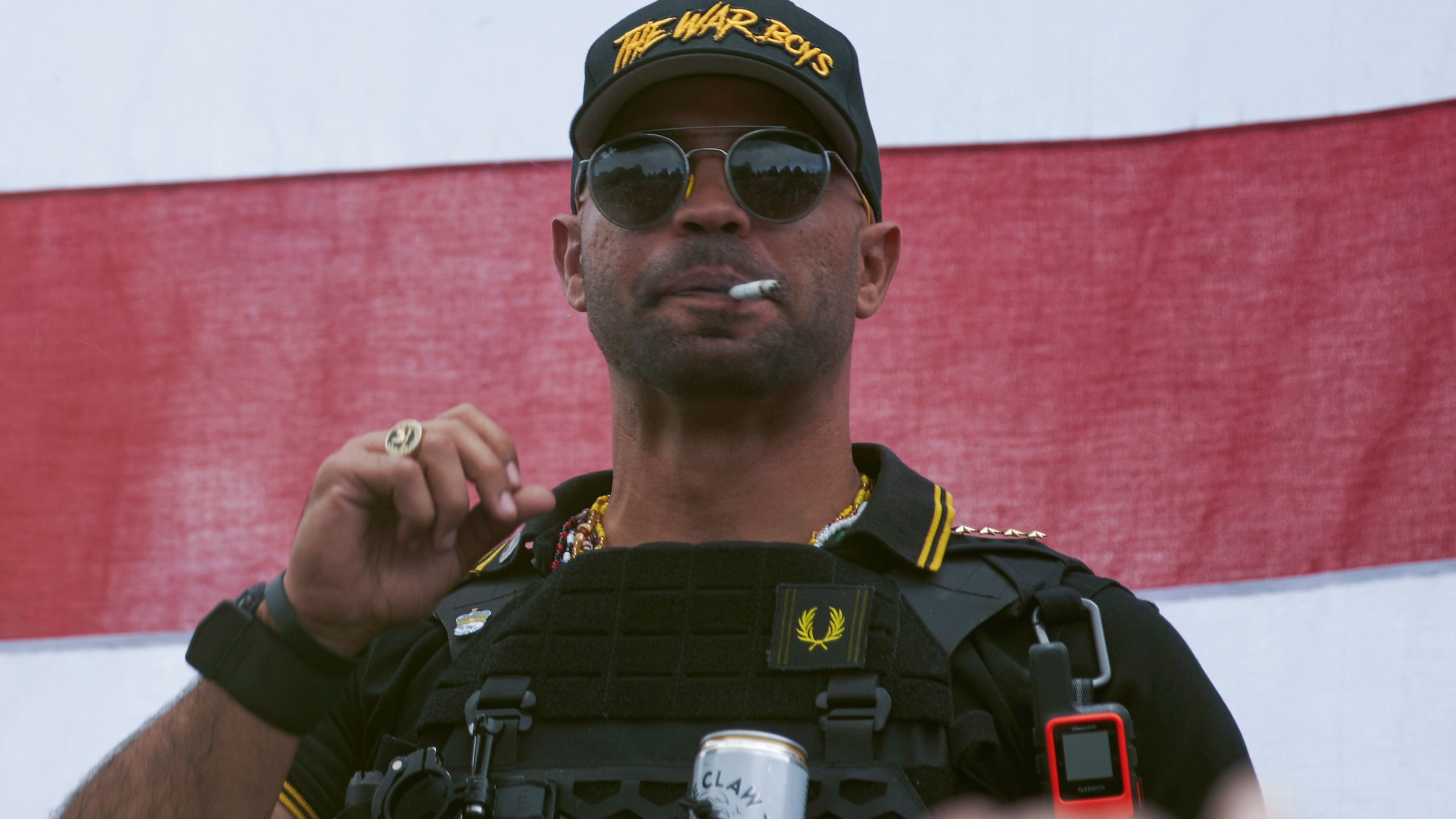
Leader of Proud Boys Arrested for Allegedly Vandalizing Black Church
Enrique Tarrio, the racist, emboldened leader of the white supremacist group the Proud Boys was arrested in Washington D.C. on Monday and will finally account for the vandalization of a prominent Black churches in D.C. during a Proud Boys rally on Dec. 12.
Tarrio, 36, was taken into custody after arriving in the nation’s capitol ahead of a Proud Boys rally on Jan. 6 scheduled to contest the election results. Tarrio was arrested on suspicion of burning a Black Lives Matter banner torn from the Asbury United Methodist Church and was in possession of two high powered firearm magazines when he was detained.
A second place of worship, Metropolitan A.M.E Church, was also vandalized when Proud Boy Members again tore down a Black Lives Matter sign.
Days after the attacks Tarrio brazenly admitted to defacing the church’s property in an interview with The Washington Post. He confessed that at least four churches were vandalized.
The arrest occurred hours after the Metropolitan A.M.E. Church in conjunction with the Lawyers’ Committee for Civil Rights Under Law filed a lawsuit in the Washington D.C. superior court. The suit names Tarrio, Proud Boys International LLC, and a number of “John Does” who participated in the attack.
The suit seeks to hold the Proud Boys accountable under the D.C. hate crime statue and accuses the named parties of trespassing and conversion. It also includes a federal claim under the Freedom of Access to Clinic Entrances Act, which prohibits intentionally damaging or destroying the property of a place of religious worship
“White supremacists will not dictate the terms of our worship, our theology or our stride and commitment to the liberation of human kind from violence, from oppression or exploitation, said Metropolitan A.M.E. Church’s Pastor William H. Lamar IV during a Monday press call regarding the lawsuit.
“We will not allow white supremacist’s violence to go unchecked by the laws of the land, he continued.
“We know that black churches have long played a central role in organizing for racial justice. They’re often at the heart of Black community organizing. And unfortunately Black churches and other houses of worship have been subjected to a long and ugly history of attacks at the hands of white supremacists,” said Kristen Clarke, president of the Lawyers’ Committee.

